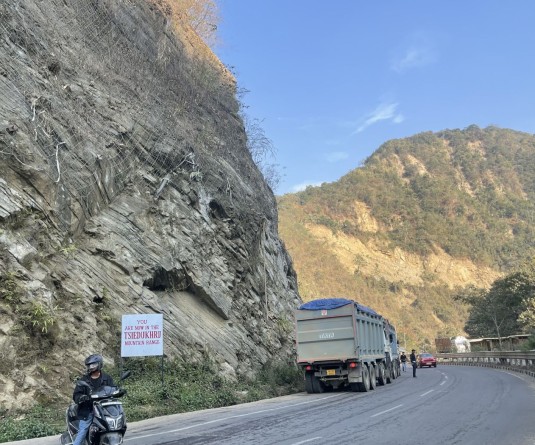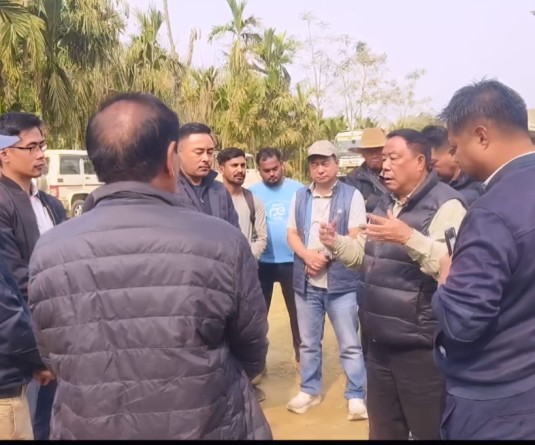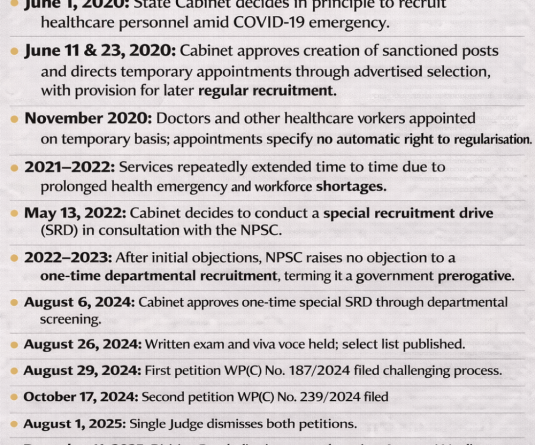BURNING ISSUE: An enforcement personnel watches over destruction of seized liquor in Nagaland. Around thirty-four years since its enactment, the Nagaland Liquor Total Prohibition Act (NLTP) 1989 continues to be a contentious issue in the State. (Morung File Photo)
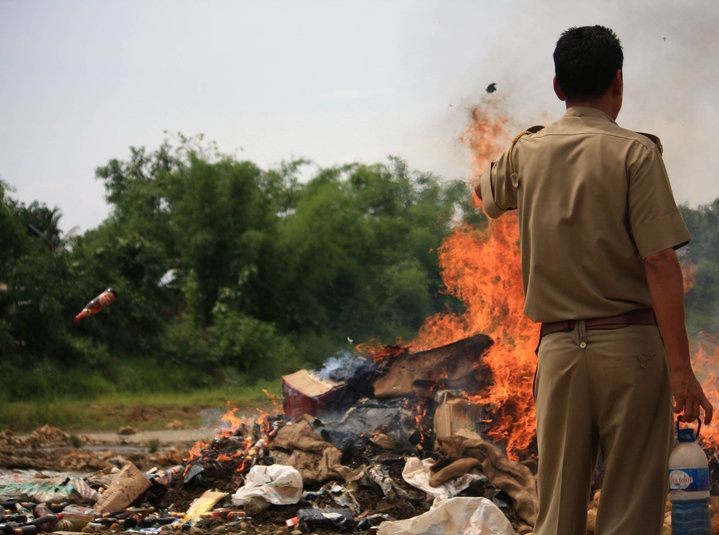
Students debate NLTP Act at ASU’s biennial
Morung Express News
Kohima | April 30
The Nagaland Liquor Total Prohibition Act (NLTP) 1989 or ‘the decoration Act,’ is one of the most debated acts in Naga history; Who are we fooling?; the Act is creating a parallel economy, and its aims are impossible to achieve except for filling the front pages of local newspapers...
These were some of the points raised by young students during a debate titled, ‘Is it time to lift the NLTP Act?’ at the Angami Students’ Union 30th biennial conference in Tuophema Village on April 29.
Nearly 34 years since the Act was passed, it continues to be one of the most contentious and debated issues on various platforms by young and old alike.
Why it should be lifted
Seyievinuo Mere, leader of the motion, argued that alcohol is readily available throughout Nagaland today if one knows where to find it.
If the Act were to leave, it should have left 34 years back, she said, pointing out that consumption has neither reduced in the slightest nor remained stagnant. “It has increased and is still rising.”
Mere further noted that there is a liquor store in every nook and corner while almost every household has someone who uses alcohol openly or behind closed doors.
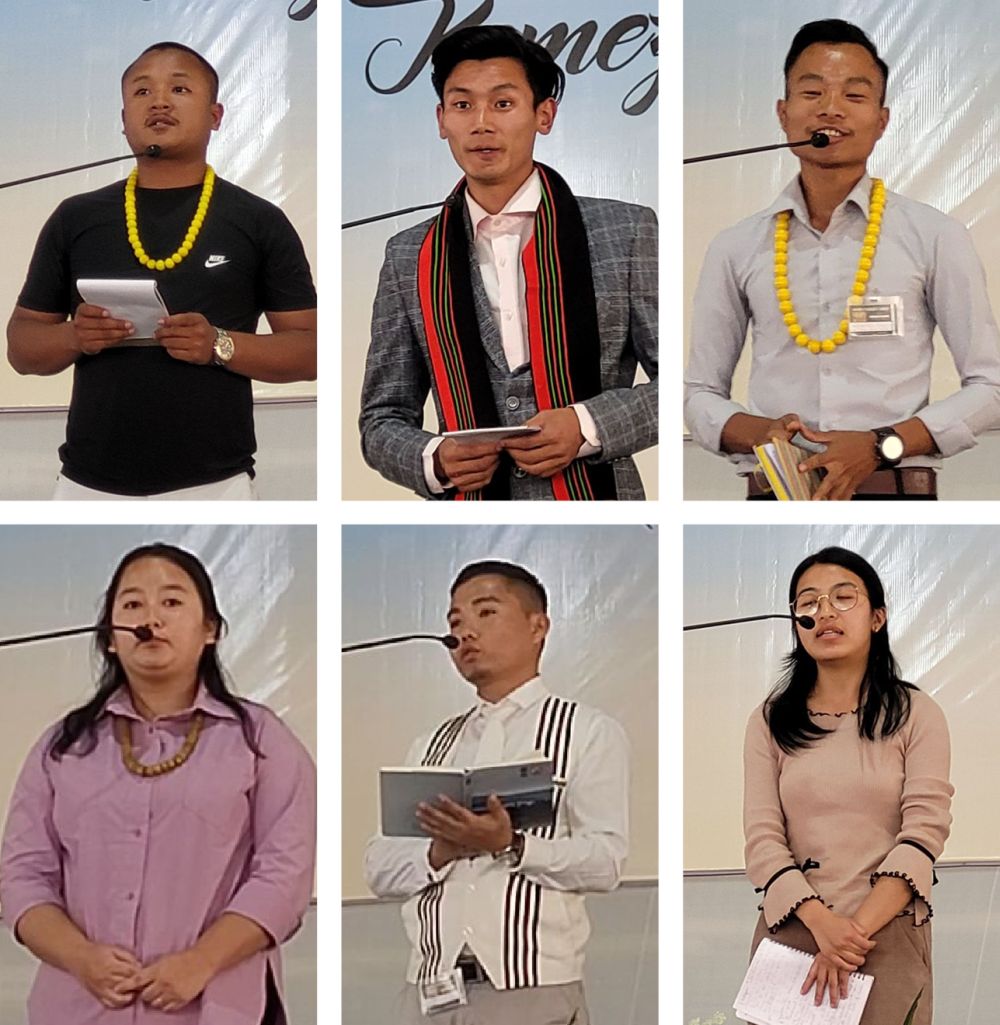
Students debate on the topic, ‘Is it time to lift the NLTP Act?’ at the ongoing Angami Students’ Union 30th Biennial Conference in Tuophema Village on April 29. (Morung Photo)
“Who are we fooling?” she posed rhetorically, further highlighting that prohibition has resulted in a thriving black market, the emergence of illegal activities, huge syndicate operations across the borders, loss of revenue, and the availability of spurious and adulterated liquor.
She also asserted that it is not advisable to consume alcohol in Nagaland due to concerning level of adulteration, thereby causing early deaths and serious health hazards to consumers.
The Act is doing more harm than good to Nagas, Mere added.
The aims of the NLTP Act are impossible to achieve except for filling the front pages of local newspapers, she said. “We need to admit that the government and the Church have disastrously failed to act upon the Act systematically and effectively.”
Justifying her arguments, Mere maintained that the Act is not the remedy as too much focus has been on advocating prohibition rather than on the individuals, who was ignored.
The way forward to tackle alcoholism, according to her, is by providing counselling, healthcare, rehabs, enlightening the consumers and the communities on the ill effects of alcohol and alcoholism on health, character, family, and society.
Another debater reminded that Nagaland is not a theocratic state, but a secular state. He stated that NLTP has its origin from Christianity, which then became a medieval phenomenon where people were confused about which is the higher power – the Church or the Government.
The Act is creating a parallel economy where the bootleggers are generating and amassing all the profits while the State Government is not getting anything except problems, he added.
"There is madness in trying the same thing over and over again, expecting a different result," he remarked.
Another debater argued that wine and alcohol are part of Naga's culture and tradition, except that ‘we do not bottle and export.’
Using comparative facts and figures, he stressed that Church and politics should play their own respective roles and never go hand in hand.
Accordingly, he advocated for lifting the Act stating: "The government is trying to give a fast route to the grave by banning liquor in Nagaland."
‘Stringent Mechanism needed’
'NLTP Act is not the solution but changing the mentality is," was the opening remark of Mhashevil Ltu, who argued against the motion and called for the continuation of the NLTP Act with more stringent measures.
He pointed out the government's insincerity and dishonesty regarding the legislation and maintained that there have been flaws in the Act since its beginning while law enforcement agencies and concerned departments have neglected their duties.
"Alcohol sellers are, in fact, facing harassment from these law enforcers themselves for cuts and shares," he noted.
In this connection, he suggested the need for some commission and omission, as well as a proper mechanism in the Act to further strengthen it with harsher and more stringent penalties.
He countered the motion of ‘being prejudiced in their arguments’ and called for not blaming those making "judicious decisions in society."
Another debater against the motion asserted that the genesis of the Act is fundamentally sound, and economic reasons cannot be prioritised over human lives for lifting the Act. He added that the core issue is enforcement, not the lifting of the Act.
Other participants from the "opposition" stated that the Act was implemented due to a lack of self-control among the Nagas, as there is a tendency to abuse it.
She asserted that the Act should never be lifted, adding that alcoholism has always compromised the Christian faith and spiritual battle between alcohol consumers and substance.
Citing the various ill effects of alcoholism on health, unemployment, family, and society, she anticipated "the worst era of unemployment” in Nagaland if the Act is lifted.
‘Clergies must decolonise Issue’
Meanwhile, Dr. Visakhonü Hibo, Principal Japfü Christian College, the critique of the debate, stated that religious intellectuals should start conversations on the "temperance movement," especially of the early missionaries and Christians in Nagaland.
While supporting the NLTP Act, she asserted that it is the responsibility of the learned clergies to decolonise the issue and come up with a clear-cut picture of liquor/wine usage as per biblically permissible levels, adding: “I feel that extremism has been our stance all along."
Expressing concerns over the flow of adulterated liquor in Nagaland, she pointed out that its consumption shortens life, creates more economic distress for poor families, while domestic violence, sexual harassment, and child abuse have not lessened despite the Act.
Another gray area, she cited, is how bootlegging is creating a massive illegal economy, encouraging crime and wealth for the Nagas while also engaging even illegal immigrants, threatening the very fabric of "our demography."
Towards this end, she viewed that it is time for all stakeholders to "stop pretending, stop washing our hands, stop passing the blame on each other but open our eyes, minds, and hearts to the realities of our drunken society and move towards a safe, sane, and progressive Nagaland."
Dr David Sachü, Assistant Professor, Sazolie College, who conducted the debate, viewed that although the NLTP Act was passed for the better good of the citizens, it has two sides – productive and counterproductive.
He also clarified the NLTP Act as the debate's topic, noting that while it appears to be a non-student centric issue, it is a subject matter "which concerns us overtly and covertly" and has an impact on students' lives.
Meanwhile, Mhathozho Khizho (SASU) and Batsonü Kweho (SASU) were respectively declared the best and second debater while the Motion won the debate.


